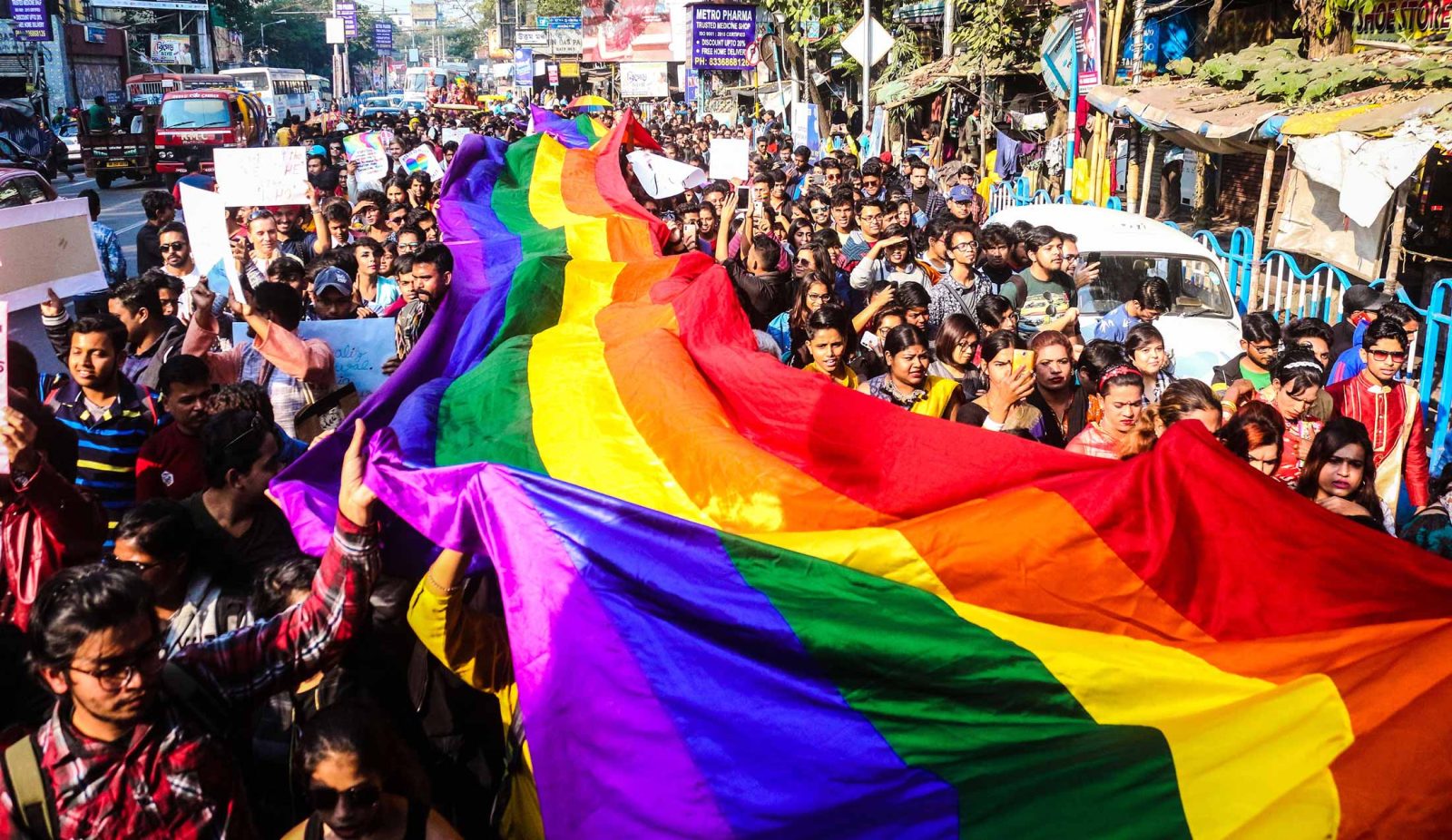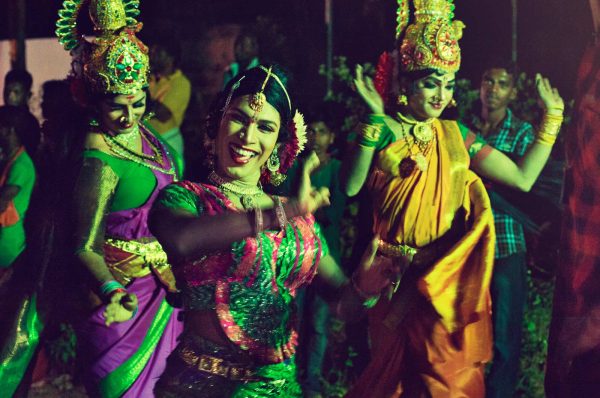Progress for LGBTQ Rights in India, Despite Slow Acceptance

|
Getting your Trinity Audio player ready... |
Indians at home and across the diaspora are excitedly anticipating Prime Minister Narendra Modi’s upcoming state visit to Washington at the invitation of US President Joe Biden. Some see this opportunity to cement diplomatic relationships as an excellent sign of progress. The state visit starts on June 22, during Pride Month in the US. India’s LGBTQ community and allies hope the meeting will positively impact an upcoming vote to adopt a law recognizing same-sex marriage and affirming LGBTQ Rights in India.
As one of the oldest and most influential cultures, India is renowned for its rich history, beauty, and diversity. However, its status as a rising economic and cultural power is tarnished by its reputation of violence against minority groups, including women, Muslims, and LGBTQ. Despite discrimination in the modern era, prejudice against LGBTQ people has not always been part of the region’s tradition. Texts from the Kama Sutra and the Maharashtra Hindu scriptures affirm the existence and acceptance of third gender and homosexuality in South Asia’s history.
Today with India’s 1.4 billion population likely to surpass China’s, the country has a population of approximately 130 million whose identity exists outside cisgender and heterosexual norms. Despite facing social and economic challenges due to discrimination, their fight for equality has brought steady progress through legislation, media visibility, and greater social acceptance in metropolitan areas.
 The Politics of Progress
The Politics of Progress
LGBTQIA is the accepted acronym for the community identifying lesbian, gay, bisexual, transgender, queer, and intersex and their allies. Sometimes, a plus sign is added at the end of the acronym to include others whose sexual orientation is not represented by the list above. What is the state of the LGBTQ community in India today?
Since the 2018 landmark ruling by the Supreme Court decriminalizing gay sexual relations, which were previously punishable by up to a ten-year prison sentence, India has made steady progress. Alongside the ruling, the historically conservative and religious nation has made visible headway in starting a conversation around sexual orientation. Families and society, in general, are becoming more accepting of LGBTQ people. The topic is no longer completely taboo, as proved by bold statements in various advertising campaigns and the inclusion of LGBTQ characters and non-heterosexual parents in Bollywood films.
While LGBTQ Rights steadily improve in modern Indian culture, individuals and groups work actively for more profound change. For example, the parents of LGBTQ children formed a support group called Sweekar or ‘The Rainbow Parents.’ The group helps give other parents the knowledge to support their children by assisting them in navigating coming out and its aftermath with extended family and society. In another example, Utkarsh Saxena is forging history as a lawyer petitioning the Supreme Court to legalize same-sex marriage. As a gay man, Utkarsh is taking an active role in his future and hopes to marry his partner Ananya Kotia once the law permits. They may be waiting some time as Modi’s government is vocally against same-sex marriage, and the Supreme Court continues to sit on the fence.
Other significant changes are already happening at the state government level. The states of Kerala and Tamil Nadu, especially, are setting precedents by using provincial powers for change. In 2016, they implemented policies aimed at securing the welfare of transgender people by making housing, education, employment, and other income-generating projects accessible.
All this progress is most visible in urban areas. However, some challenges beyond the control of individuals remain. These include laws around same-sex relationships that restrict LGBTQ people from marrying, adopting children, and other spousal privileges such as insurance, joint bank accounts, and making crucial life decisions as an officially recognized spouse.

Slow Progress in Rural and Remote Areas
Away from modernity, city lights, skyscrapers, world-class technology, and social media, rural communities tend to hold on to conventional ways of doing things. They don’t easily part with old customs, conventions, and, sadly, at times, even barbaric cultural practices. Inflexible traditions and rigid belief systems diminish the lives and happiness of those in the LGBTQ community living in rural and remote India. Many remain closeted about their sexuality, fearing what could happen to them. Others succumb to arranged heterosexual marriages under pressure from their families. Without acceptance in rural societies, people in same-sex relationships may not even find safety within their own families.
Some who have come out to their families must endure conversion or corrective ‘therapy,’ which many still falsely believe can convert one’s sexual orientation and make them straight. Held in mental institution-like facilities, ‘patients’ undergo brutal treatments and are pumped with medication. They often suffer horrible side effects since they didn’t require any medication in the first place. Conversion ‘therapies’ can veer into outright violence, especially for women whose families order rape as a corrective measure for being lesbians.
Besides ‘therapy,’ some communities turn to intervention by a spiritual or religious leader. In one such case, a gay son who had just come out to his family challenged them to have the spiritual man make the family gay and then convert them back to heterosexual if this was how things worked. Fortunately for him, this argument brought clarity to the family, who then dedicated themselves to learning as much as they could to support and understand him better. Unfortunately, not everyone is so lucky.
Another barbaric practice committed against unconventional sexual orientation in rural communities is honor killing, an ancient savage practice still occurring primarily in South Asia and some Middle Eastern countries. Honor killings are murders of (usually female) family members considered to have brought dishonor or shame to their family name. Honor killings are performed with brutal methods by close family members in cases involving pre-marital sex, adultery, or inter-caste marriages. They inflict the practice against those who come out as non-heterosexual. It’s hard to believe many families would rather kill than have a gay, queer, lesbian, or transgender child. This murderous act violates India’s law, International Human Rights laws, and the Amnesty International agreement. However, the kangaroo courts in villages, known as Khap Panchayats, are a law unto themselves. They often ignore honor killings and continue to seal the fate of many LGBTQ people in rural India by upholding patriarchal norms and caste biases.
The Next Step for LGTBQ Rights
As India’s LGBTQ community eagerly awaits the legalization of marriage equality, it is worth noting that in a world with 195 countries, only about 30 nations recognize same-sex marriage. Many are still very hostile towards individuals who don’t fit the conventional mold of sexuality and intimate relationships. Just as “the journey of a thousand miles begins with a single step,” meaningful change takes time. On a more hopeful note, a recent poll by the Pew Research Center found that 63% of Indians support same-sex marriage.
It’s also worth noting that legalization will not instantly stop LGBTQ abuse. Hate crimes against LGBTQ people still occur regularly in the West, where homosexuality and same-sex marriage are legally protected.
Nevertheless, legalizing same-sex marriage is an opportunity for India to improve life for 130 million Indians and send a message to the region and the world. Will President Biden put a bug in the ear of Prime Minister Modi as they stroll around the White House rose garden? And will it make any difference if he does?
Edited by Michael Moss













 The Politics of Progress
The Politics of Progress